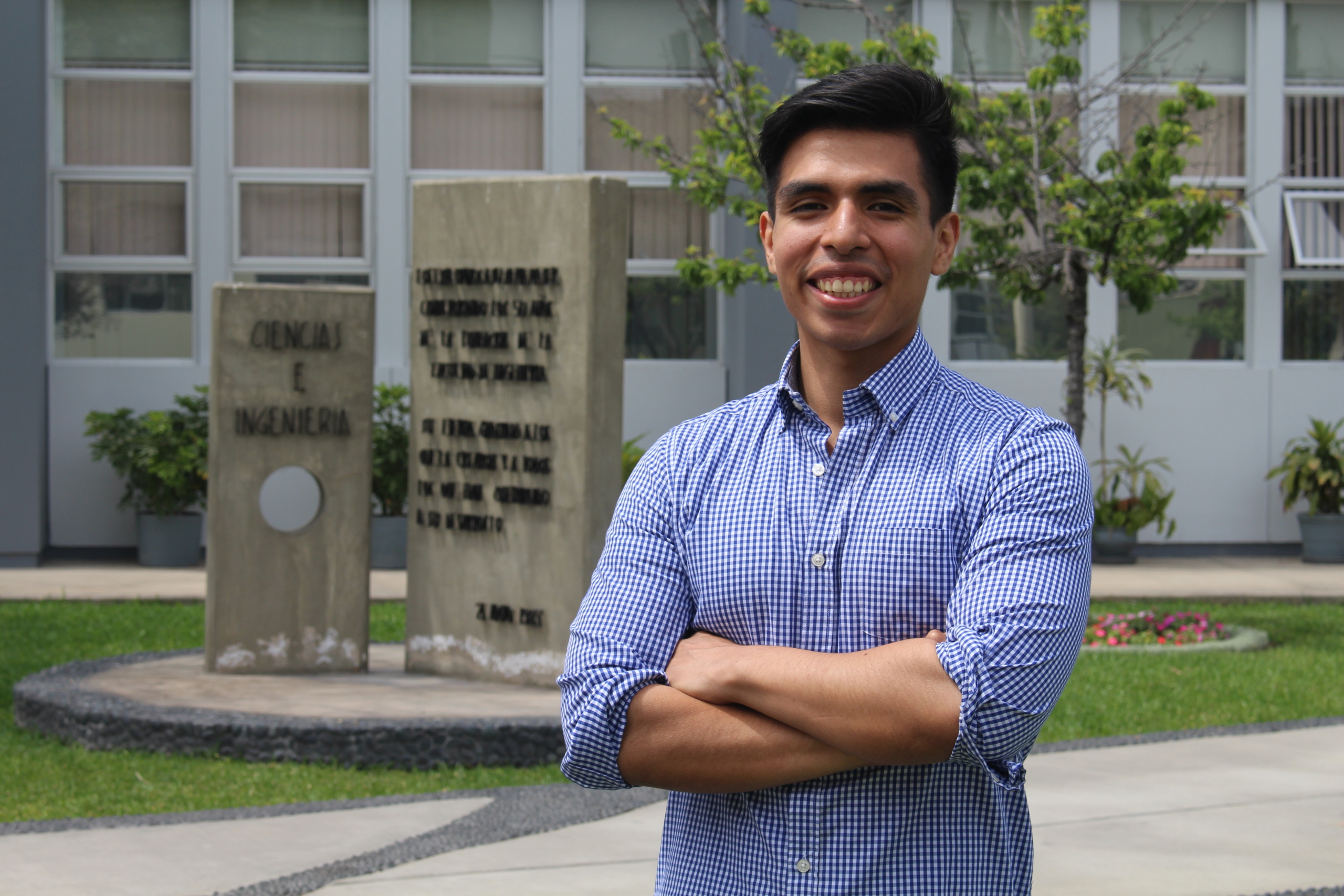
In the framework of the call “2017 Doctoral Scholarships Abroad”, promoted by Cienciactiva, an initiative from the National Board of Science, Technology and Technological Innovation (CONCYTEC), our alumnus Rafael Cerna, from the academic program of Telecommunications Engineering, was chosen to follow graduate studies at Eindhoven University of Technology, in Holland.
What is your research proposal?
The full name of the research topic is «»Beam steering of the antenna radiation in terahertz signals using hybrid photonic-electrical methods»». The objective is to obtain a wireless communication system that may address radiation of electromagnetic waves in terahertz (signals with a length from 1mm to 0.1mm) in specific directions. For this, techniques operating with light signals (photonic signals) and electrical signals will be used.
How did your interest in this topic arise?
Following courses of electromagnetism in the School it grew up and it deepened when it was the time of writing my thesis, where I designed and implemented a beam steering system for mobile 4G and 3G networks.
This new research topic on terahertz signals is not only useful for mobile communications but also it may be used in areas representing the Peruvian needs such as medical apps, security cameras in airports, analysis on agricultural crops, analysis on cultural articles, among others. The most exciting thing is that there are still more apps to discover, as terahertz signals were an unexplored territory a few years ago.
What is the target institution?
The doctorate is in electrical engineering, at Eindhoven University of Technology, in Holland. This research will be conducted in the Institute for Photonic Integration of said university.
In 2015, Rafael was ranked second, with graduate students, at the International Wireless Symposium, a conference that took place in Shenzhen, China, with the purpose of sharing and knowing the progress in wireless communication techniques. Our alumnus participated in the competition of students’ papers with the topic of his undergraduate thesis: beam steering system for 4G and 3G mobile networks.
In the personal and academic field, what are the differences between your participation at IWS and this new achievement?
Although the topics are relatively similar, in doctoral studies I will be able to learn about photonic devices that do not exist in Peru, and to work with students from different nations and learn from their experiences and knowledge. My experience on undergraduate studies at PUCP (the work with my colleagues, the support from professors, the quality of teaching and facilities in laboratories of the academic program) and the participation at IWS 2015, definitively, created a solid basis to face this new opportunity of professional and personal development. In my opinion, development opportunities come to our lives, but only if we are prepared to respond to them satisfactorily. I feel all these experiences prepared me for this time and that makes me feel quiet.